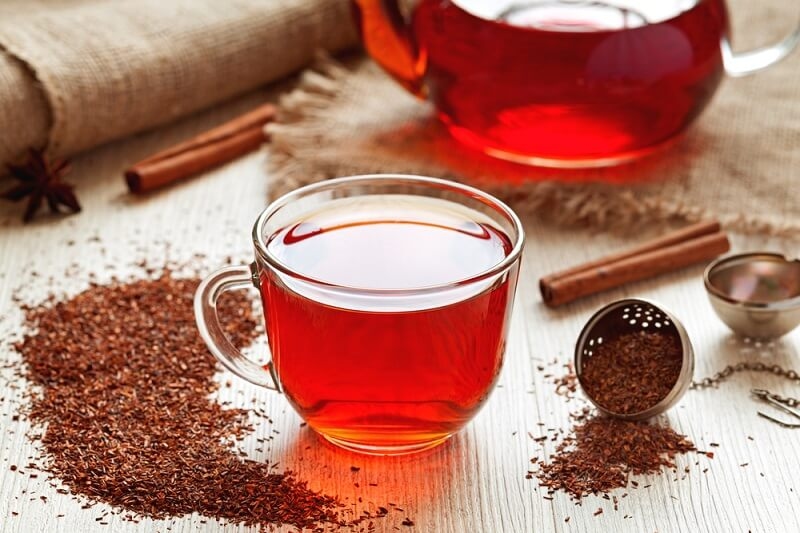
When most people think about tea, their mind goes straight to green, black, or maybe chamomile. But let’s be real—those are just the tip of the iceberg. Africa has been steeping leaves, flowers, and roots into healing brews for centuries. And the rest of the world? Only just catching on. These teas don’t just warm your hands; they tell stories, carry traditions, and, yes, deliver real wellness perks. If you’ve ever wondered why they’re making such a buzz, let’s walk through the top eight African Herbal Teas Benefits that actually matter.
Here’s a thought: everyday life isn’t exactly kind to the body. Pollution, processed food, even stress at work—it all builds up. That’s where antioxidants step in. African teas like rooibos and honeybush are brimming with them. Think of antioxidants as tiny bodyguards, fending off damage before it snowballs. Sipping rooibos regularly can quietly reduce your long-term risk of things like heart disease. And the best part? You don’t need to force yourself—it tastes naturally smooth, slightly sweet, and way more inviting than the bitter edge of some other teas.
Among the stars of African teas, hibiscus deserves a round of applause. Bright red in color and a little tart, it’s not just delicious—it’s been linked with lowering blood pressure. Plenty of studies suggest that people who add hibiscus to their routine may see a gentle improvement in cardiovascular health. No wonder people rave about Hibiscus tea health properties whenever the subject comes up. Imagine swapping your usual sugary drink for a chilled glass of hibiscus on a hot afternoon. It doesn’t just refresh; it quietly does your heart a favor.
Not everyone thrives on caffeine. Some people toss and turn after just one cup of coffee, while others get that jittery, anxious buzz. Here’s the beauty of African teas: most are naturally caffeine-free. Rooibos, honeybush, and many local blends give you flavor without the restless nights. That’s why so many wellness enthusiasts are turning to Caffeine-free African teas as their evening ritual. A hot mug before bed signals to the body, “Relax, it’s time to wind down.” No stimulants, no crash, just comfort.
Let’s be honest, bloating or indigestion can ruin your day. The good news? Many African herbal teas are traditionally brewed to ease the stomach. Rooibos, for example, contains anti-inflammatory compounds that calm gut irritation. Honeybush is another soothing option that locals have leaned on for generations. Add in blends with ginger or lemongrass—both common in African households—and you’ve got a natural way to support digestion. The next time you overdo it at dinner, try swapping dessert for a warm cup. You’ll thank yourself in an hour.
Now, here’s where it gets interesting. You’ve probably seen flashy ads for “detox teas” online. But in Africa, detoxifying blends aren’t a marketing stunt; they’re part of food and medicine culture. The so-called African detox teas aren’t about extremes or quick fixes. They help balance the body gently. Hibiscus, for instance, may reduce water retention, while rooibos helps stabilize blood sugar, keeping cravings in check. Add them into a healthy lifestyle and they become supportive partners—quietly nudging your body in the right direction rather than promising miracles.

In today’s world, everyone’s hunting for immune boosters. Instead of reaching for pills, why not sip on centuries-old remedies? Rooibos contains zinc and vitamin C, both essentials for strong immunity. Honeybush adds minerals like calcium and magnesium to the mix. In some African communities, people also brew teas with moringa leaves or baobab fruit, which are nutritional powerhouses on their own. This is where Rooibos tea nutrition shines—it’s not just about flavor but real support for the body’s defenses.
Let’s face it, modern life is noisy. Between phones buzzing and deadlines looming, peace feels rare. That’s where tea rituals come in. Rooibos is naturally sweet and calming, making it a favorite for winding down. Honeybush offers a soothing, honey-like aroma that feels like a gentle hug at the end of a long day. And when locals mix in herbs like chamomile or lavender, you get an infusion that’s practically spa-like. If you’ve been craving calm, these teas might be the easiest way to press pause.
Here’s something most blogs skip: these teas are more than nutrients in a cup. They’re cultural lifelines. In many African communities, tea isn’t just about health—it’s about gathering, storytelling, and care. Brewing a pot often carries as much meaning as drinking it. That’s why people talk about herbal remedies in African drinks not only for their medicinal effects but for their role in connection. When you sip, you’re joining in a tradition that stretches back centuries. That heritage is a benefit in itself, offering a sense of grounding in a world that often feels rushed.
So, what’s the big picture? African herbal teas bring together wellness, tradition, and flavor in a way that few other drinks can. The African Herbal Teas Benefits run from antioxidant protection to heart health, digestive ease, stress relief, and cultural roots. Whether you’re sipping hibiscus on ice, enjoying rooibos before bed, or experimenting with detox blends, you’re not just drinking tea—you’re taking part in a bigger story.
And the truth? These teas don’t need hype. They’ve stood the test of time, passed down through generations, and still hold up today. That’s the kind of credibility no supplement aisle can match.
Herbal teas from Africa aren’t just another “trend.” They’re proof that natural wellness has been around long before the word “wellness” got trendy. From the heart-protecting tang of hibiscus to the calming sweetness of rooibos, from the digestive comfort of honeybush to blends created as African vegan swaps for caffeinated drinks, there’s something for everyone.
The next time you’re looking for a warm, soothing moment, skip the usual tea bags. Reach for something that carries culture, health, and centuries of wisdom in a single cup. After all, the best remedies are often the ones that have been quietly working all along.
This content was created by AI